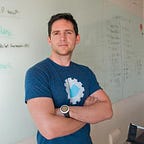Post-mortem one-on-one meetings
Saying goodbye to a member of the team is never easy. No matter what the reason behind is, you feel as if there was something that you could’ve done to avoid it. When it happens you have two ways of dealing with this situation: you can keep blaming yourself, blaming the person and reminiscing of what could have been done, or you can try to make the most of a challenging situation.
As a company, there are a variety of ways you can contribute to your ecosystem: open source, talks, open training, blog posts, etc. but what better contribution than a well trained professional that can share your company culture. This healthy engineer work rotation ends up weaving a lifelong strong community. Some call it a “mafia”, I prefer to call it a “clan”.
Strengthening the bond
Sometimes after a team member leaves, I set up a call with the purpose of answering a few questions:
What do you miss about working in Audiense?
What are you most excited about your new work environment?
The ideal moment to get in touch is a month after they start work at their new job. It’s around that time that they begin to yearn the things they valued the most about your company. A month in they should already be relatively integrated within the company whilst still being excited about what they like in the new position. There will be a lot of new things they fall in love with while some others will seem nonsensical given their biased perspective.
What can you get out of the session?
What benefits and perks do they value from the new company?
You’d be surprised by the number of things that you can do to make your team happy, and not everything depends on being a unicorn.
What aspects of the new culture, workflows, and tools do they like?
It’s not about copying another companies’ culture but about preparing yourself for the next by drawing from their transition. A majority of the time team members will move on to larger more mature organizations allowing you to learn how to effectively transition to the next stage. You can read tons of books and blog posts about engineering culture and how to scale it but no one will help you better than someone that has experienced the transition. Even if they go to an early stage startup you can learn from that company’s differing approach.
What are their stack and continuous delivery processes?
As a company, you can’t afford to try every new technology or practice out there. Now you have a colleague joining a new team and business, learning and using new technologies. By maintaining a good working relationship with them they could provide you with insight as to whether or not these new technologies or practices would work for your company.
Goodbye !== see you soon
This meeting is a good opportunity to offer yourself as a mentor as they grow in the next stage of their career. Your responsibility as a manager shouldn’t end after you get the laptop back, you should support your colleague in their new decision and carry the company culture with them wherever they go.
